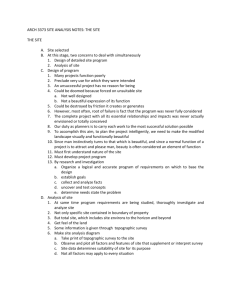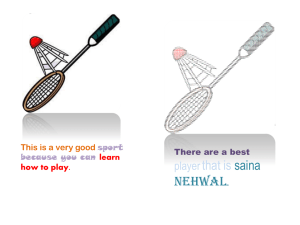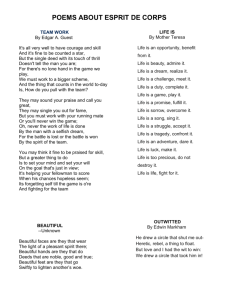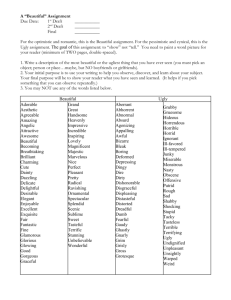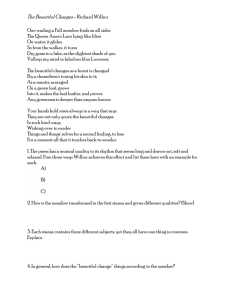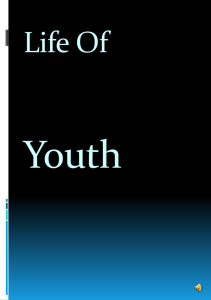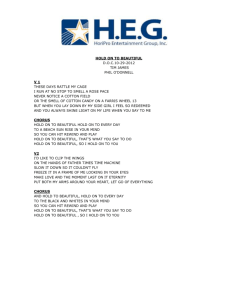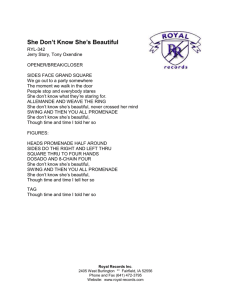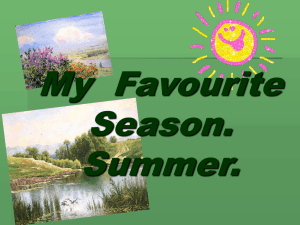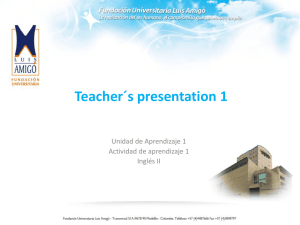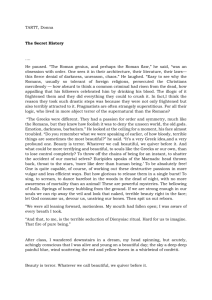Year 8 Autumn Term 2: Prose Study
advertisement
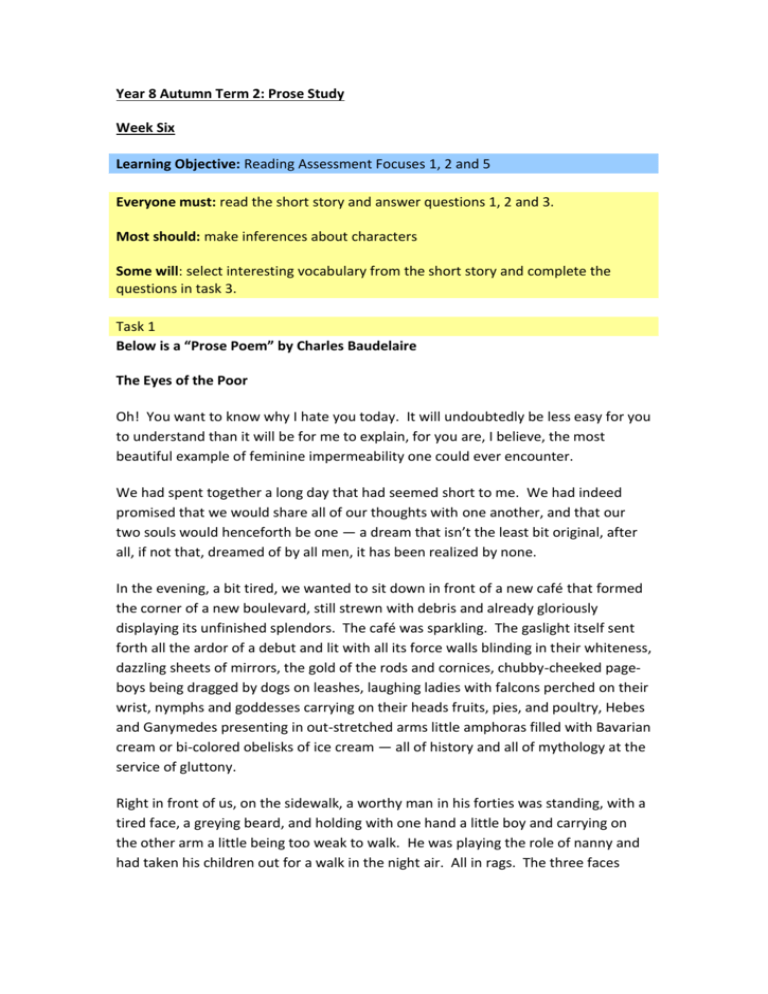
Year 8 Autumn Term 2: Prose Study Week Six Learning Objective: Reading Assessment Focuses 1, 2 and 5 Everyone must: read the short story and answer questions 1, 2 and 3. Most should: make inferences about characters Some will: select interesting vocabulary from the short story and complete the questions in task 3. Task 1 Below is a “Prose Poem” by Charles Baudelaire The Eyes of the Poor Oh! You want to know why I hate you today. It will undoubtedly be less easy for you to understand than it will be for me to explain, for you are, I believe, the most beautiful example of feminine impermeability one could ever encounter. We had spent together a long day that had seemed short to me. We had indeed promised that we would share all of our thoughts with one another, and that our two souls would henceforth be one — a dream that isn’t the least bit original, after all, if not that, dreamed of by all men, it has been realized by none. In the evening, a bit tired, we wanted to sit down in front of a new café that formed the corner of a new boulevard, still strewn with debris and already gloriously displaying its unfinished splendors. The café was sparkling. The gaslight itself sent forth all the ardor of a debut and lit with all its force walls blinding in their whiteness, dazzling sheets of mirrors, the gold of the rods and cornices, chubby-cheeked pageboys being dragged by dogs on leashes, laughing ladies with falcons perched on their wrist, nymphs and goddesses carrying on their heads fruits, pies, and poultry, Hebes and Ganymedes presenting in out-stretched arms little amphoras filled with Bavarian cream or bi-colored obelisks of ice cream — all of history and all of mythology at the service of gluttony. Right in front of us, on the sidewalk, a worthy man in his forties was standing, with a tired face, a greying beard, and holding with one hand a little boy and carrying on the other arm a little being too weak to walk. He was playing the role of nanny and had taken his children out for a walk in the night air. All in rags. The three faces were extraordinarily serious, and the six eyes contemplated fixedly the new café with an equal admiration, but shaded differently according to their age. The father’s eyes said: “How beautiful it is! How beautiful it is! You’d think all the gold in this poor world was on its walls.” — The eyes of the little boy: “How beautiful it is! How beautiful it is! But it’s a house only people who aren’t like us can enter.” — As for the eyes of the smaller child, they were too fascinated to express anything other than a stupid and profound joy. Song-writers say that pleasure makes the soul good and softens the heart. The song was right this evening, as regards me. Not only was I moved by this family of eyes, but I also felt a little ashamed of our glasses and our carafes, which were larger than our thirst. I turned my gaze toward your’s, dear love, to read my thoughts there; I plunged into your so beautiful and so bizarrely gentle eyes, into your green eyes, inhabited by Caprice and inspired by the Moon, and then you said to me: “I can’t stand those people over there, with their eyes wide open like carriage gates! Can’t you tell the head-waiter to send them away?” So difficult is it to understand one another, my dear angel, and so incommunicable is thought, even between people in love!” 1. When do you think this story was written? 2. Where does the incident take place? 3. Why do you think this? Task 2 4. Who is the narrator talking to? 5. What do we learn about both characters (narrator and his companion)? 6. What is their relationship? Task 3 List ten words you find interesting that feature in this short story. Why did you choose them? What do they mean? (Did you know them before?) 1 2 3 4 5 6 7 8 9 10
